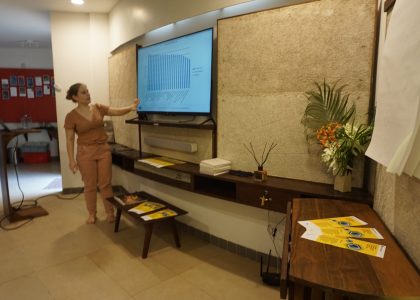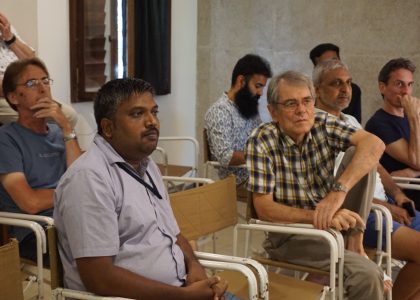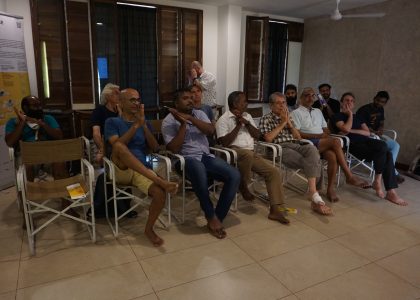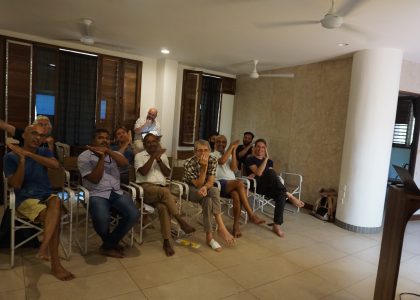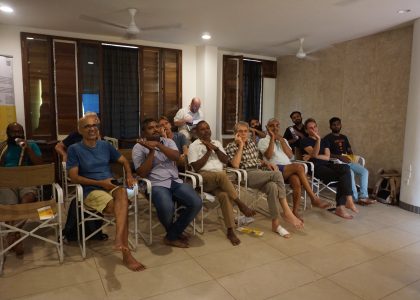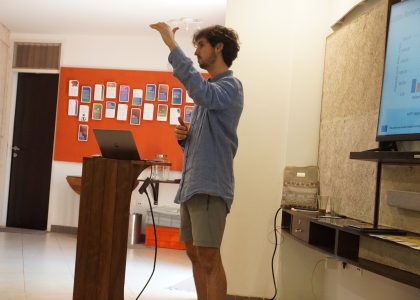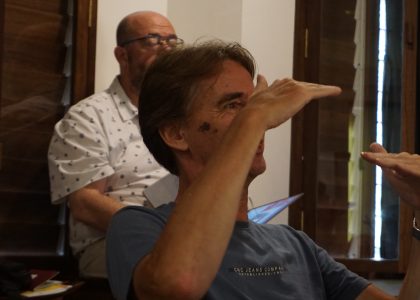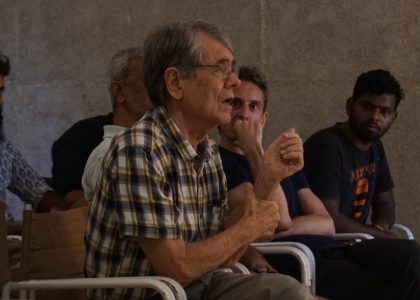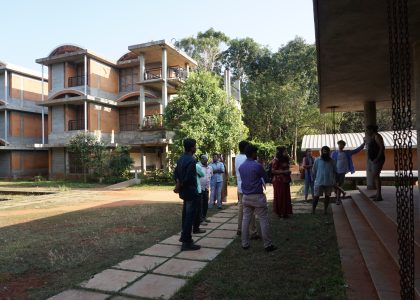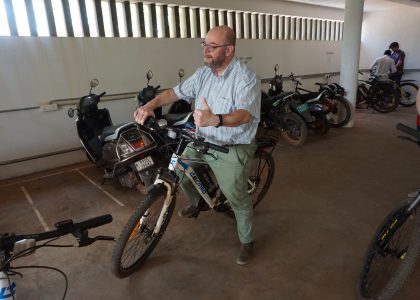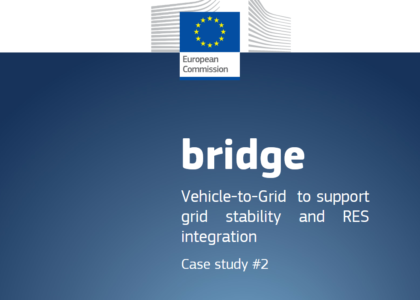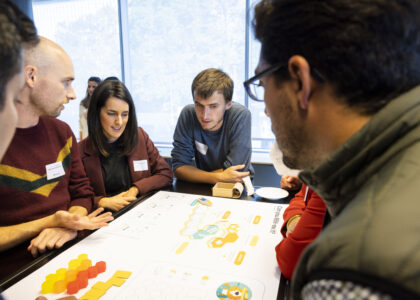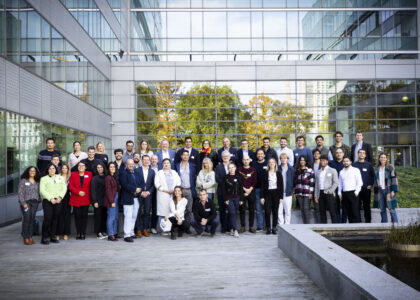by Maria Luisa Lode, PHD researcher @Vrije Universiteit Brussels
The project replication team is currently running at full steam: the team composed by members of the Consortium from BAX&Company, VUB University and Deep Blue contacted several emerging energy communities to test and replicate the RENAISSANCE approach worldwide. Soon after the MAMCA workshop in Szaserow, between the 8th and 13th of March, the team travelled to INDIA, where it organised several meetings with representatives from civic associations, research institutes and technical universities. In this article we focus on the MAMCA workshop which took place in Auroville on Saturday the 13th of March.
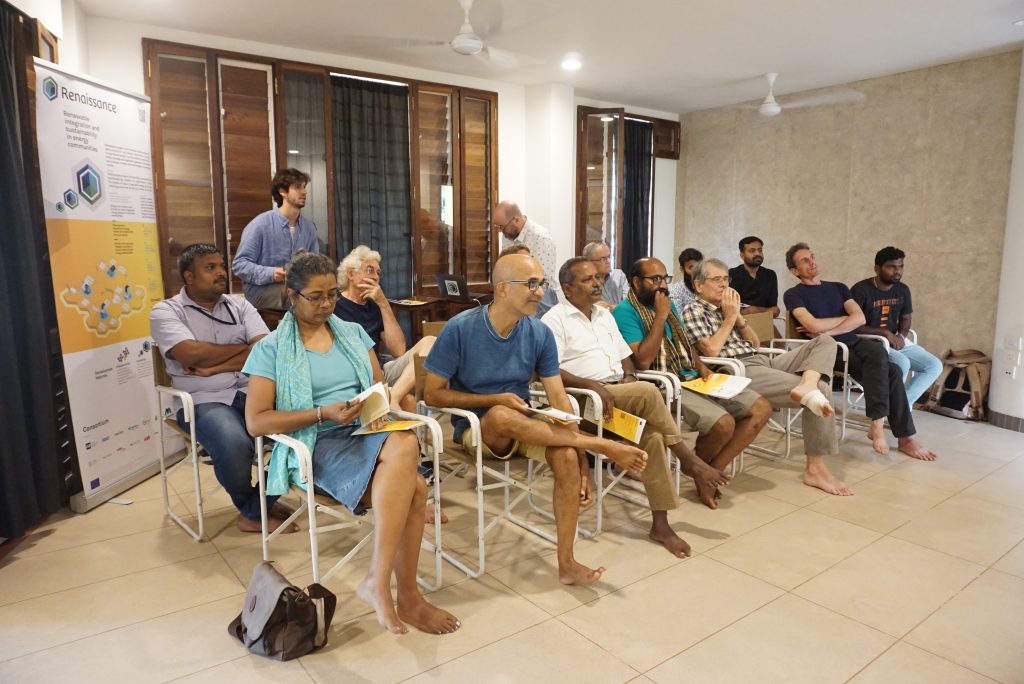
Objectives of the MAMCA workshop in Auroville
The main purpose of this workshop was that of engaging citizens and all interested parties already since the early phases of the decision making process related with the potential kick-off of a new local energy community. Moreover, we wanted to improve our understanding about the local regulations and Auroville’s approach related with sustainability projects, in particular concerning renewable energies. To this aim the RENAISSANCE project conducted a Multi-Actor Multi-Criteria Analysis, assessing the developed energy solutions with a group of Aurovillians. The energy solutions were developed collaboratively with the E-Land project, joining efforts to develop the best energy solutions for the site. During the workshop all community members were involved in deciding which criteria and solutions they considered most suitable for Auroville’s future energy system.
The workshop took place in Auroville Consulting premises. Thirteen (13) people participated, representing the residing community and small local business owners were also invited. The project Coordinator prof. Thierry Coosemans was supported by me, Maria Luisa Lode, as workshop moderator and by Ander Martinez Gonzales who presented the consumption pattern analysis. The analysis was conducted in the past months using the data provided by the 5 sub-stations in the village, thanks to the support of Martin Schaerfler and the E-Land project team. Rebecca Hueting from Deep Blue took pictures and videos and supported with facilitation.
Before the meeting our team had a short meeting with Auroville Consulting. The main points discussed were:
- Understand how blackouts affect the community and how the assets are connected and performing depending on the grid availability;
- Provide a tailored and comprehensible overview of what has been considered for the modelling, especially for the reference scenario;
- Know more about the development of the village, as buildings keep being added to the grid and there are plans to add 200 kWh of batteries in the next year.
MAMCA workshop report
The workshop started with presentations from participants and research team members. Supported by a set of explanatory slides, participants were invited to re-evaluate the energy system evaluation criteria that were identified through a previous online survey. The MAMCA methodology is structured in different steps and identifying common goals and objectives, needs and evaluation criteria are essential to weight the different scenarios and reach consensus on the most desirable one.
Before intiating the voting session we invited participants to read all criteria and identify new ones deemed important for the community in order to build an effective and long-term commitment to the renewable energy transition. After a lively discussion, participants agreed on the importance of two additional criteria: the presence of a support and maintenance service and the grid stability/resilience against outages and blackouts.
Since voting digitally with the MAMCA tool was considered too complex and “excludent” by a few participants, a more creative weighting process was proposed: in order to let participants decide which criterion was more important to them, through couples comparison, they could physically lean on their left or right side. After acknowledging each other’s opinion, they could verbally agree on a specific numerical weight on a 20-digit scale (i.e. from -10 to +10). We added the scores from the moderator’s notebook and results double checked at the end of the voting session.
Finally, MAMCA scenarios were presented by PHD engineer Ander Gonzalez Martinez from VUB, who explained in detail what each proposed energy network upgrade would mean for Aurovillians in terms of costs, benefits and risks. He also gave participants’ the opportunity to comment and express their doubts, providing explanations and consumers’ trade-offs.
Once again participants had the opportunity to discuss and jointly evaluate each scenario’s feasibility in the local context, also considering more in-depth not only the social and environmental impact on the local echosystem, but also include a broader view on the life-cycle assessment of planned improvements and assests upgrade. Except the scenario A. in which grid stability and renewable power production would be increased, all other scenarios envisioned the upgrade of BES systems (battery energy storage). To this concern, participants were worried about the rare materials and chemical components needed to produce both photovoltaic panels and batteries. They agreed on the need of providing transparent and comprehensive information to the Auroville community about such impacts, pushing towards responsible consumption and not only towards the increased production of renewables. They declared that adding up capacity both in terms of production and storage would have the controversial consequence of increasing consumption habits and therefore nullyfying efforts towards zero emissions.
Conclusions
The MAMCA process allowed all involved people to set the basis for a tangible community project towards zero-emission targets and collective self-consumption and production of renewable energy on site. As a result they also increased the common understanding of the pros and cons of the different options available and had the opportunity of consolidating their social bonds and mutual trust. Soon after the workshop we circulated a feedback survey about the MAMCA methodology and results will be included soon in this report.
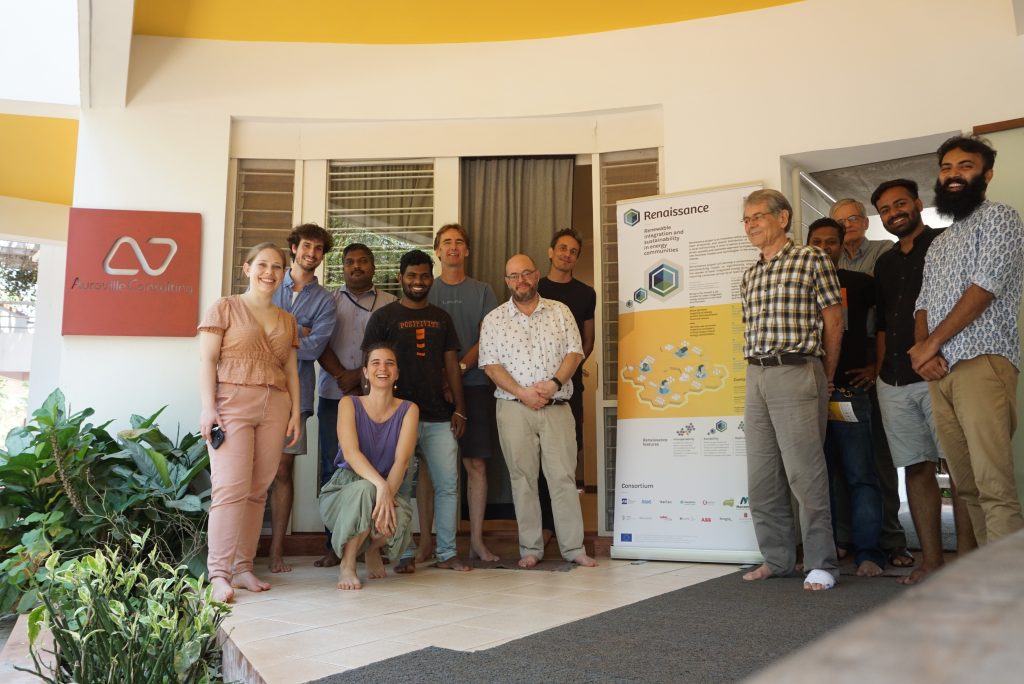
Site visit on e-bikes
Finally, following up to the conversation with the company “Fourth Partners”, mobility targets were discussed with Martin Scherfler and Veera Mani from Auroville Consulting: before the year 2030 the objective is to electrify circulating vehicles, reaching a 65% of electric two-wheelers and 50% of electric four-wheelers. After the meeting we visited Auroville riding e-bikes rented from the Kinisi service, getting to know all the sustainable local projects, local architecture and the installations of the pilot site.
Follow us:
